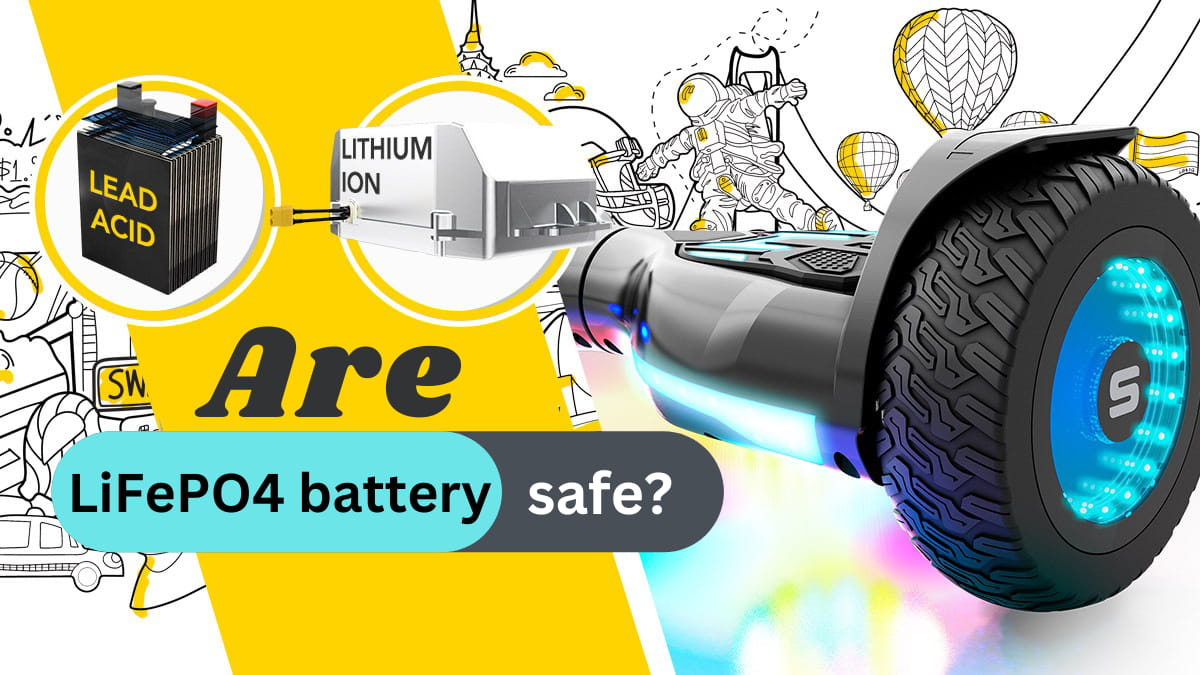Are LiFePO4 Batteries Safe? Lithium Iron Phosphate Batteries Safety Concerns
The safety of Lithium Iron Phosphate (LiFePO4) batteries is a common concern among those considering their use. LiFePO4 batteries represent the latest technology and offer many advantages over traditional lead acid batteries. However, it is essential to understand their safety risks before making an informed decision about their use. This article will explain the potential safety hazards of LiFePO4 batteries and guide how to use them safely.

Are lifepo4 batteries safe?
Yes, LiFePO4 batteries are safe. They are considered one of the safest types of rechargeable batteries due to their chemical composition and design. LiFePO4 batteries have a low flammability rate, meaning they cannot catch fire or explode. Additionally, they can handle high temperatures better than other batteries, making them more reliable in extreme conditions.
What are LiFePO4 batteries and how do they work?
LiFePO4 batteries are a relatively new type of rechargeable battery that has been gaining traction in recent years. A LiFePO4 battery is composed of lithium iron phosphate, which gives it its name and provides several distinct advantages over traditional lead-acid batteries. These batteries are lightweight, have high power density, offer good deep-cycle performance, and have a much longer lifespan than lead-acid ones.
These LiFePO4 batteries work pretty simply. When the battery discharges electricity, the lithium ions move from the anode to the cathode with electrical current being generated between them – this is how energy is released from the battery. Conversely, when you charge a LiFePO4 battery, what happens is that those same ions move back from the cathode to the anode, and this generates an electrical current that charges up the cells inside it.
LiFePO4 battery safety concerns
LiFePO4 batteries have several safety concerns to consider. Most importantly, they must be charged and discharged within their recommended voltage range. Suppose a LiFePO4 battery is overcharged or discharged below its recommended minimum. In that case, it can cause permanent damage to the battery and even lead to a fire.
It’s also essential to use the correct charger for LiFePO4 batteries. Chargers designed for other types of batteries may not correctly charge these cells, leading to an unsafe situation. Additionally, when setting, ensure enough ventilation around the battery pack to prevent overheating and potential fire hazards.
Finally, always inspect your LiFePO4 batteries regularly for any signs of damage or wear and tear. Replace any damaged cells immediately and never attempt to repair them yourself, as this could lead to further damage or injury.
LiFePO4 battery safety measures
LiFePO4 batteries require some safety measures to ensure proper operation and avoid damage or injury.
The first step is always to use the correct charger for your LiFePO4 battery. Using a charger designed for another type of battery can cause irreversible damage or even result in an explosion. It’s also important not to overcharge the battery, as this can cause it to swell and potentially rupture.
Finally, it would help if you never short-circuited a LiFePO4 battery or exposed it to temperatures above 60°C (140°F). Doing so can cause the battery to catch fire or explode. If you notice any swelling or discoloration on the battery, discontinue use immediately and dispose of it properly. Following these safety measures will help keep you safe when using LiFePO4 batteries.
In conclusion
LiFePO4 batteries are considered safe compared to other lithium-based chemistries; however, it’s essential to consider safety when using them. To ensure safety and reliability, always use high-quality LiFePO4 cells and adhere to the manufacturer’s instructions for proper usage. Additionally, try to limit charging current and avoid discharging below recommended levels. Proper maintenance and storage can also help extend the life of these batteries.








